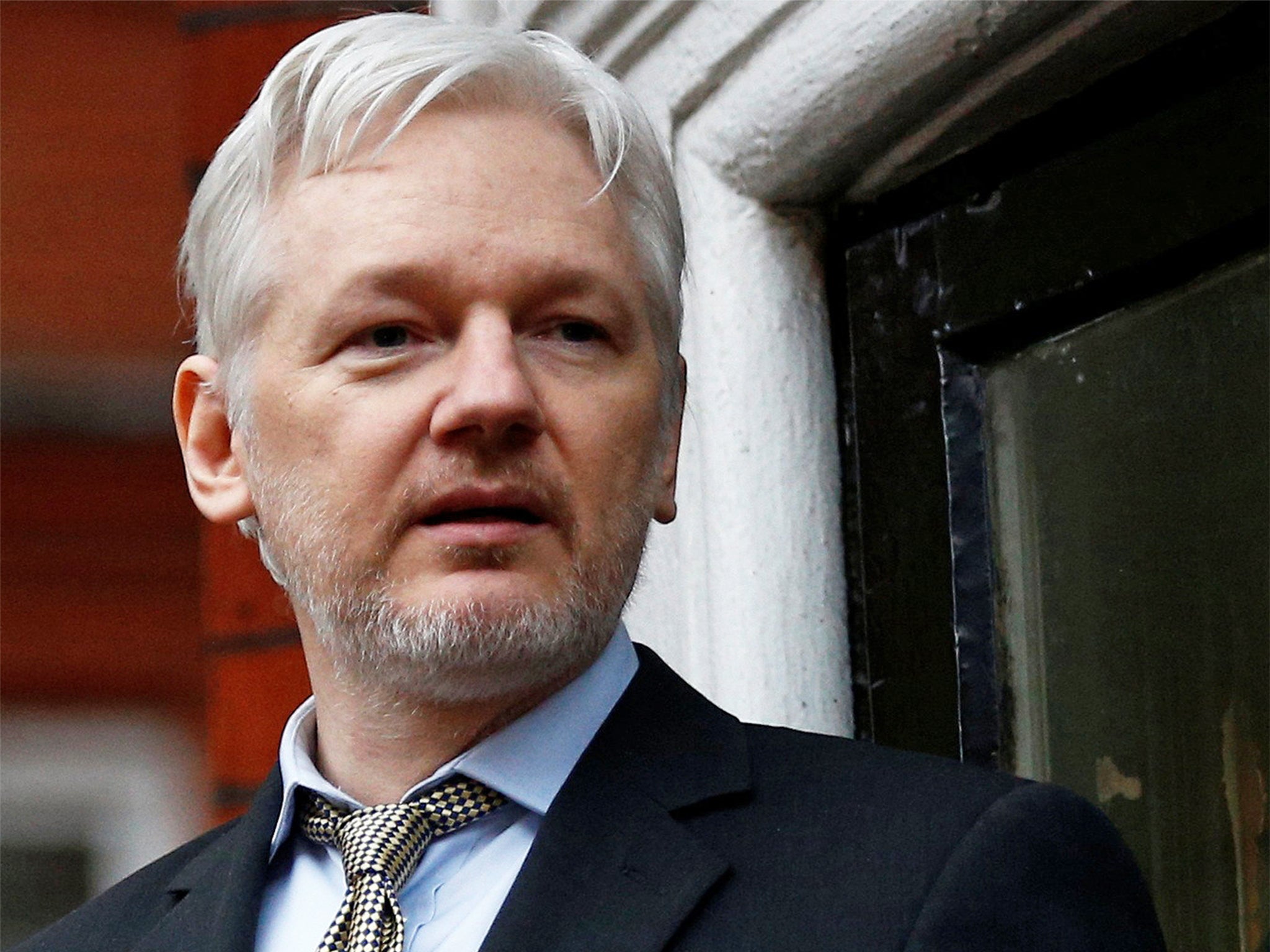Wikileaks says Ecuador has cut Julian Assange's internet connection
The whistleblowing website has not revealed any potential motive

Your support helps us to tell the story
From reproductive rights to climate change to Big Tech, The Independent is on the ground when the story is developing. Whether it's investigating the financials of Elon Musk's pro-Trump PAC or producing our latest documentary, 'The A Word', which shines a light on the American women fighting for reproductive rights, we know how important it is to parse out the facts from the messaging.
At such a critical moment in US history, we need reporters on the ground. Your donation allows us to keep sending journalists to speak to both sides of the story.
The Independent is trusted by Americans across the entire political spectrum. And unlike many other quality news outlets, we choose not to lock Americans out of our reporting and analysis with paywalls. We believe quality journalism should be available to everyone, paid for by those who can afford it.
Your support makes all the difference.Julian Assange's internet connection has been cut off by Ecuador, WikiLeaks claims.
The whistleblowing website has so far released no further information as to a potential motive, but the announcement deflects blame from both the UK and US governments.
WikiLeaks originally accused a “state party” of cutting the internet connection of its founder Julian Assange.
The website’s official Twitter account shared a tweet at 6am this morning claiming Assange’s access had been cut but did not name which state party it was accusing of severing the connection.
In a tweet, the group said the connection had been “intentionally severed”. “We have activated the appropriate contingency plans.”
Assange has been living in the Ecuadorian embassy since he was granted political asylum in 2012. His self-imposed exile began to avoid extradition to Sweden, where he was wanted for questioning over allegations of sexual assault.
In 2014, he filed a complaint against the UK and Sweden and said he was being “arbitrarily detained” in the Embassy as he could not leave without being arrested.
The claim comes after Wikileaks began releasing emails allegedly hacked from an account belonging to Hillary Clinton campaign chairman John Podesta. The authenticity of the emails has not been verified.
A spokesperson for the Embassy told The Independent the only person authorised to speak to press was the ambassador who was unavailable for comment.
Join our commenting forum
Join thought-provoking conversations, follow other Independent readers and see their replies
Comments